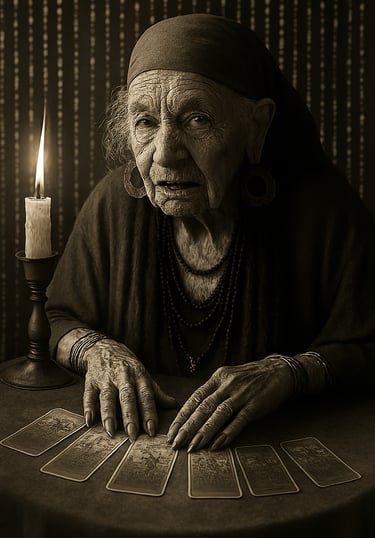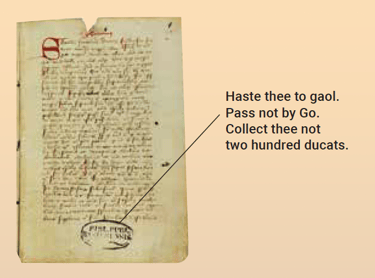
Tarot isn’t fortune telling.
It’s fortune framing.
The first thing that comes to mind for most people when they hear the word tarot is fortune telling. While there is an element of outlining a possible future to most readings, tarot is not really designed to predict any set outcome. The cards show a snapshot of what is likely to transpire if nothing changes...if you stay on your present course and in your present frame of mind, if the world stops spinning and other people never influence you at all in any way ever ever again.
Clearly, that’s not reality.
Tarot doesn’t determine a fixed or fated future because we all have free will. So you’d do well to forget the Hollywood image of a snaggle-toothed woman who points to a scary card with a craggy fingernail and whispers, “I see deeeeattthhhh.”
Nnnnnno.
So why bother to get a tarot reading at all? Lots of reasons!
Tarot will give you context for how your past influences your present. Insight into your behavior and decisions. New perspective. Clarity around what does and does not serve you. Reminders and challenges to approach life in ways that benefit your greatest and highest good. Guidance for the path forward. Inspiration to manifest your dreams. And empowerment to go do it.
Yes, the cards really do offer all of these gifts. Receiving any one of them in a reading feels a whole lot better than crediting the cards with spelling out some predetermined fate and waiting around for it to “come true.” We are all meant to take an active role in our lives. The tarot is a beautiful tool to help us do that in the best ways possible.




Where does tarot come from, anyway?
The origin of tarot is a fascinating story and a pretty complicated one. This fun, illustrated timeline boils it down to the highlights.
Bernice Mandelbaum as Hag #6 in 1938's Just Sitting Around Waiting for My Life to Happen